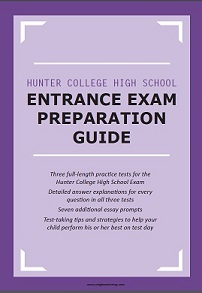MCA Practice Test + How to Ace the MCA Reading and Math Test
/Public school students in Minnesota are required to take the Minnesota Comprehensive Assessments (MCA) in Reading, Mathematics, and Science.
These tests are linked to the Minnesota Academic Standards, which specify the skills and knowledge students should master at each grade level.
In this article, we’ll give you all of the details you need to know about the MCA, plus links to MCA practice tests and tips on how to help your child prepare.
So let’s get started! First, click the button below to get a relevant grade-level MCA practice test. Along with this test, you will also receive a bonus PDF "5 Top Tips to Use Practice Tests Effectively" to help your child study for the test.
MCA Basics
Minnesota students are required to take the MCA in grades 3-8 and in high school. The Reading test is administered in grades 3-8 and again in 10th grade, while the Mathematics test is a requirement for grades 3-8 and grade 11.
The Science MCA is administered in grades 5, 8, and again in high school when students take a life science or biology course.
Students with significant disabilities may be eligible to take the Minnesota Test of Academic Skills (MTAS), an alternate assessment based on an alternate set of standards.
MCA tests are administered online only. The Reading and Mathematics MCA are computer adaptive tests, meaning the test adjusts to an individual student’s skill level.
On the Reading test, a student’s answers to questions about a passage determine the level of difficulty for the next passage set a student will receive. On the Mathematics test, the answer to each question helps determine the next question a student will be asked.
MCA tests are untimed. This is to ensure that the test is accurately measuring a student’s skill level and that an individual’s score is not negatively impacted by time constraints.
Test scores are used to evaluate individual strengths and weaknesses, inform instruction, and measure the effectiveness of teachers, schools, and districts.
While MCA scores may be used to place students in appropriately challenging or supportive courses, scores are not used to determine graduation or promotion.
Below, we’ll explore the specific types of questions your child will encounter on each of the three exams, focusing particularly on Reading and Mathematics.
MCA Reading
On the Reading assessment, students read both informational and literary passages and answer questions demonstrating the ability to comprehend and analyze these texts.
Fiction texts include stories, drama, and poetry. Nonfiction texts include autobiographies, biographies, technical texts, opinion pieces, texts about science, social studies, and the arts, and more.
Students in grades 3-8 read 4-7 passages total, while 10th grade students may read up to eight passages. Passages and questions are divided into three test sessions.
There are two types of questions: multiple choice and technology enhanced items. The technology enhanced items may require students to drag and drop text, select text from a passage, complete charts or tables, etc.
Depending on grade level, questions may focus on the following topics:
MCA Practice Test - Supporting Details sample
MCA Practice Test - 5th grade sample
MCA Practice Test -Plot sample
MCA Practice Test - 7th grade sample
MCA Practice Test - 10th grade sample
MCA Practice Test - 3rd grade sample
MCA Practice Test - Summary sample
MCA Practice Test - 7th grade sample
While most states have an “English Language Arts” exam, Minnesota’s exam is exclusively “Reading.” This means that your child will not be required to write any texts, whether short answer responses or essays, for this assessment.
Instead, Minnesota’s test focuses solely on your child’s ability to read, understand, and analyze a wide variety of texts at a high level.
If you think your child needs additional preparation for MCA Reading, you can access MCA Reading practice tests online for each grade level.
MCA Mathematics
The MCA Mathematics test assesses students on mastery of grade-level appropriate mathematics skills and concepts*. Students should also be able to apply these skills to real-world problems and scenarios.
Like the reading assessment, the computer-adaptive MCA Mathematics test includes both multiple choice and technology-enhanced items. Technology-enhanced items include:
MCA Practice Test - 5th Type sample
MCA Practice Test -7th Graph sample
MCA Practice Test - Drag and Drop 8th sample
MCA Practice Test - 3rd Location sample
MCA Practice Test - 4th Multiple Correct sample
There are generally 42 questions for all grade levels except 11th. 11th grade students answer 47 questions instead. Questions are divided into three sessions.
Questions focus on the following categories:
MCA Practice Test - Number and Ops 3rd sample
MCA Practice Test - Number and Ops 6th sample
MCA Practice Test - 5th Algebra sample
MCA Practice Test - 8th Algebra sample
MCA Practice Test - 4th Geometry sample
MCA Practice Test - 7th Geometry sample
MCA Practice Test - 6th Probability sample
MCA Practice Test - 11th Probability sample
Calculators are allowed on some, but not all test items. For eleventh grade students, calculators are permitted for every question on the MCA Mathematics test.
To help your child build confidence and familiarity with this assessment, it’s a great idea to spend time working on MCA Math practice tests. At the end of this article, we’ll also share some tips on how to use the MCA practice tests most effectively.
MCA Science
Minnesota students must take MCA Science in grades 5 and 8, as well as once in high school. The test assesses grade level appropriate knowledge of science-related skills and concepts.
Questions are multiple choice and technology-enhanced. Technology-enhanced items can include dragging and dropping, selecting more than one correct response, clicking a location on a diagram or image, etc.
Science questions occur in sets associated with specific tasks or hypothetical experiments and investigations.
For 5th and 8th grade students, question categories include:
MCA Practice Test - 5th Nature of Science sample
MCA Practice Test - 8th Physical Science sample
MCA Practice Test - 5th Earth and Space sample
MCA Practice Test - Life Science 8th sample
High school students are limited to two categories:
MCA Practice Test - : High School Life Science sample
As with the other assessments, you and your child will be able to prepare using MCA practice tests.
How to Ace the MCA Reading and Math Tests
There are several strategies you and your child can use to successfully prepare for the MCA assessments.
Here are a few suggestions:
While all of the suggestions above will help your child, we feel that the best test preparation strategy is to work with sample questions and MCA practice tests.
Remember that there are MCA Reading practice tests, MCA Mathematics practice tests, and MCA Science practice tests available for all tested grade levels.
Of course, simply answering questions and then moving on is not the most effective way to utilize these resources. Ensure that your child understands why right answers are correct.
When your child answers a question incorrectly, take the time to clear up any misconceptions and help your child develop a better approach to this question type.
Once you’ve practiced enough to identify areas of weakness, you may want to focus future practice sessions on these question types.
You don’t want your child to over prepare or get burnt out, so keep practice sessions short, upbeat, and encouraging.
You’ll also want to use the most classic of all test preparation tips: make sure your child gets a good night’s sleep and a nourishing breakfast prior to each exam.
The information, tips, and MCA practice tests provided here should put you and your child on the path to a successful MCA performance!




























